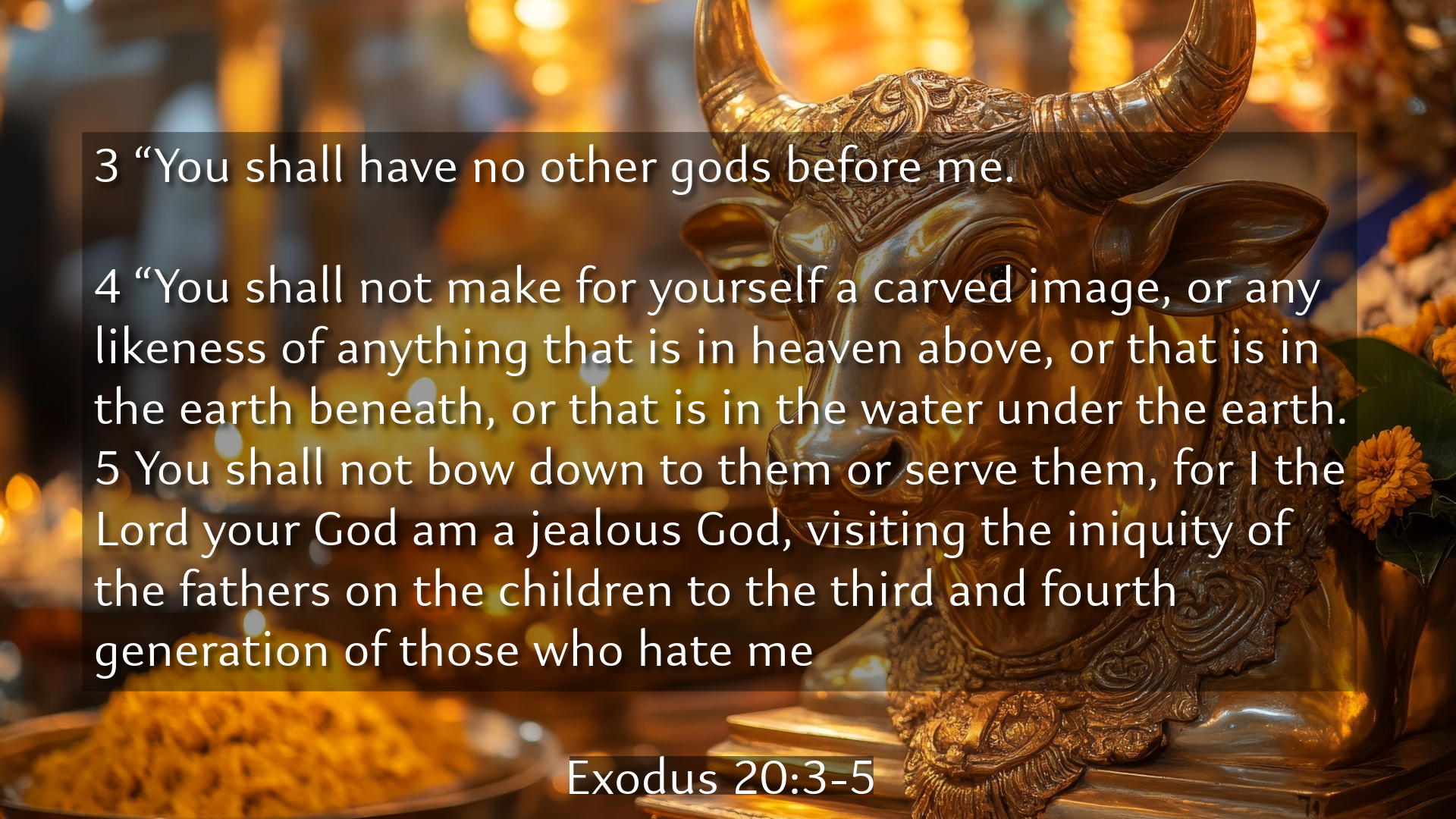As we wrap up Part 2 of our Every Good Endeavor series discussing the problems with work, we arrive at a sobering truth: our work often exposes the idols of our hearts. Whether we realize it or not, the way we approach our careers, ambitions, and daily tasks can reveal what we truly worship.

The above verses warns us against bowing down to anything other than God. But idolatry isn't just about statuses or rituals; it's about what we love, serve and derive meaning from more than the true God. When we turn good things into ultimate things, we begin to trust them to deliver what only God can: control, security, significance, satisfaction, and beauty.
Even those who don't consider themselves religious look to something (money, success, approval) to ensure them that their lives matter. But God makes it clear: either He will be our God, or something else will take His place.
Personal, Cultural, and Corporate Idols
While we might think idols are personal, there are also cultural and corporate idols. These idols shape our behavior, especially in the workplace.
- Comfort & Pleasure: These idols can make it hard to work diligently or pursue a fruitful career.
- Power & Approval: They drive us to overwork, compromise our values, or become ruthless.
- Control: Leads to anxiety, micromanagement, and a lack of trust.
Oftentimes, we are blind to our own idols; however, we can usually spot them easily in others. When entire cultures or companies elevate certain traits to ultimate status, we see the rise of corporate idols— values that may have benefits but also distort our work. These idols can be broken up into traditional, modern, and postmodern. Each culture has their own set of idols that impact work.
Traditional Cultures: The Idol of Belonging and Stability
In traditional cultures, identity is deeply rooted in family, race, and nation. These values can foster strong community bonds and loyalty. Sounds great, right? When they are elevated to ultimate status, they become idols that distort our view of others and our work.
- Family and Social Hierarchy: Work roles are often assigned based on family lineage or social convention. This can lead to rigid structure where individuals are expected to "stay in their place," limiting personal growth and innovation.
- Nationalism and Ethnocentrism: Pride in one's race or nation can morph into superiority complexes, leading to exclusionary practices and discrimination in the workplace.
- Stability over individual rights: The emphasis on social harmony and loyalty may suppress dissent and creativity. Business decisions might prioritize group cohesion over individual well-being or ethical concerns.
While these values can promote unity and purpose, they can also blind us to injustice and hinder progress when they become idols.
Modern Cultures: The Idol of Autonomy and Achievement
We now shift to modern cultures, which have largely "dethroned" traditional idols, replacing them with reason, individual freedom, and personal success. These values have driven remarkable progress, but they've also created new idols.
- Work as identity: In modern societies, your job isn't' just what you do, it's who you are. Success is measured by ambition, talent, and productivity. This shift has elevated certain careers while devaluing others, creating a hierarchy of worth based on profession.
- Autonomous Self: The belief in the self-made individual can lead to isolation and burnout. When autonomy becomes an idol, collaboration and humility are sacrificed for personal gain.
- Efficiency and Rationalism: The scientific method and empirical reasoning dominate decision-making. While this boosts productivity, it can also strip work of its moral and spiritual dimensions.
Modern idols promise freedom and fulfillment, but they often deliver pressure, comparison, and a sense of inadequacy.
Postmodern Cultures: The Idol of Image and Uncertainty
Finally, postmodern cultures reject grand narratives and fixed truths. Instead they embrace pluralism, technology, and consumerism. This shift has created a landscape where identity is fluid and meaning is elusive.
- Technology as Savior: If something can be done through technology, it will be done (regardless of ethical implications.) Innovation is prized, but often lacks a moral compass.
- Consumer Identity: People are encouraged to construct their identities through brands and online personas. Careers in media, entertainment, and marketing are shaped by this trend, with products marketed not for their utility but for the lifestyle they promise.
- Means Over Ends: With no shared vision of the good life, society focuses on techniques and tools rather than purpose. This leads to competition for personal success without a clear sense of what success truly means.
Postmodern idols offer flexibility and self-expression, but they can also leave us fragmented, anxious, and disconnected from deeper truths.
Hope for Our Work
So what hope is there for work in a world full of idols?
The gospel offers a new storyline!
- A New Narrative: Work becomes part of God's redemptive plan.
- A Rich Conception of Work: We partner with God in His love and care for the world.
- A Moral Compass: The gospel helps us navigate ethical decisions with clarity.
- A New Power: Our motives are transformed, and we're empowered to endure challenges with grace.

While perfection awaits Christ's return, we can experience more inspired, realistic, satisfying, and faithful work today. We will take a deeper look into this starting next month as we start the last part of this series.




